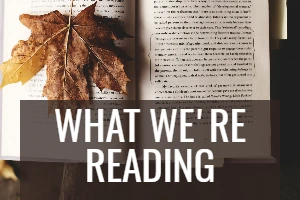A friend walks around all day with her earbuds in, listening to audiobooks. She can’t get to sleep at night unless a book is playing. She goes through four or five books a week. Another made lists on Goodreads and carefully tracks her “bookage.” She got so obsessed with the volume of books she was reading (300 last year!) that the obsession seemed to take over the pleasure of reading.
So why do people read? To learn? To amuse? To fill in the cracks of boredom? Probably all of these. In 2021 America’s four biggest publishers released:
- Penguin Random House – 85,000 books
- HarperCollins – 10,000 books
- Simon & Schuster – 2,000 books
- Hachette Book group – 1,800 books
On the reading side in 2020 (admittedly not a normal year because of the pandemic):
- Print books out-sell eBooks 4-to1
- 191 million e-books were sold in the United States in 2020
- Printed book sales amounted to 750.89 million units in 2020
- Print book sales have increased 13.2% between 2020 and 2021, and 21% between 2019 and 2021
- eBook sales grew by 22% in 2020
So what’s the better way to read? Here’s a bit of a debate about formats in Wired:
“While some disciples of this culture are quick to dismiss audiobooks as a shortcut, they cannot seem to agree on why, exactly, listening is an inferior form of engagement. Some cite studies that have shown people who listen to books retain less than those who read them, which is bound up with how tempting it is to do other things while listening. (As easy as it is to multitask with audiobooks, the form does make it harder to return, after a spell of distraction, to the passage where your mind started to wander.) Others insist that audiobooks eliminate the reader’s responsibility to interpret things like irony, tone, and inflection, given that the person recording does the work of conveying emotion. According to this rather tenuous logic, listening to audiobooks is inferior precisely because it is easier—because it lacks the element of suffering that is incontrovertible evidence of accomplishment, the same way soreness is proof of a real workout.
The larger problem, however, is in viewing books as a means to some other end. Many people who aspire to read more are motivated by the promise that doing so will prevent cognitive decline, improve brain connectivity, or increase emotional intelligence. Even the obsession with retention assumes that the purpose of reading is to absorb knowledge or nuggets of trivia that one can use to demonstrate cultural literacy or being “well read.” What all of this obscures is the possibility that books might be a source of intrinsic pleasure, an end in themselves.”
